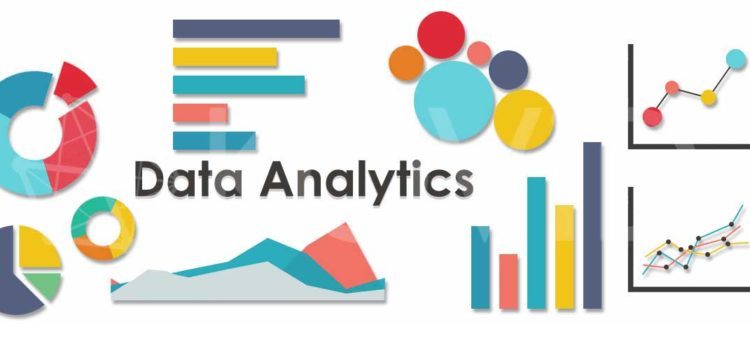The world is awash in data, and the ability to extract meaningful insights from it is more valuable than ever. Enrolling in a data analytics course can be your gateway to this exciting field, equipping you with the skills to navigate the data landscape and unlock its potential. But what exactly can you expect from such a course? Let’s delve into the key aspects:
1. Foundational Knowledge:
- Building Blocks: A solid foundation in statistics, probability, and linear algebra forms the core of data analytics. Additionally, your course will likely introduce you to these fundamental concepts, providing you with the necessary mathematical language to understand and analyze data effectively.
- Data Wrangling: Data often comes in messy and unstructured formats. Your course will equip you with the skills to clean, manipulate, and transform data into a usable format, preparing it for further analysis.
- Programming Proficiency: Python and R are the workhorses of data analytics. You can expect to gain proficiency in at least one of these languages, learning how to write scripts, automate tasks, and perform various data manipulations.
2. Analytical Techniques:
- Unveiling Patterns: Your course will dive into various analytical techniques, such as hypothesis testing, regression analysis, and clustering. Moreover, these techniques help you identify patterns, trends, and relationships within data, allowing you to draw meaningful conclusions.
- Visualization Power: Data visualization is crucial for communicating insights effectively. Additionally, you’ll learn how to create compelling charts, graphs, and dashboards to present your findings in a clear and concise manner.
- Predictive Modeling: Understanding how to build and interpret predictive models is a valuable asset in data analytics. Additionally, your course might introduce you to concepts like machine learning, allowing you to explore how models can be used to forecast future outcomes.
3. Practical Tools and Skills:
- Software Savvy: Beyond programming languages, data analysts leverage various software tools. Additionally, your course might introduce you to popular tools like SQL databases, data warehousing platforms, and data visualization software. This equips you with the ability to handle data efficiently.
- Project-Based Learning: Many data analytics courses incorporate project-based learning, thus allowing you to apply your newly acquired knowledge and skills to real-world data sets. This hands-on experience further helps solidify your understanding and prepares you for the challenges of the job market.
4. Career Guidance:
A good data analytics course will not only equip you with technical skills but also provide career guidance. You can expect to gain insights into the various career paths available in data analytics, along with tips on resume building, interview preparation, and networking within the field.
Conclusion:
Enrolling in a data analytics course is an investment in your future, opening doors to a rewarding career in this dynamic and ever-evolving field. While the specific course content may vary, you can expect to gain the foundational knowledge, analytical techniques, practical tools, and career guidance necessary to embark on your journey as a data analyst. Remember, the most valuable takeaway from your data analytics course is not just the technical skills, but the ability to think critically, solve problems creatively, and communicate insights effectively.
So, if you’re looking to propel your career forward and become a sought-after data analyst, consider enrolling in one of the best data analytics course in Chandigarh, Gurgaon, Nashik and other cities in India. With dedication and the knowledge gained from your course, you’ll be well-equipped to navigate the world of data and unlock its potential, transforming from a data novice into a confident and analytical professional. The future of data awaits your exploration.
FAQ’s
What are goals and expectations of this data analytics program?
The goals and expectations of this data analytics program are to equip participants with the skills and knowledge needed to excel in the field of data analytics. Participants can expect to learn key concepts and techniques in data analysis, including statistical analysis, data visualization, and predictive modeling. Additionally, the program aims to provide a comprehensive understanding of data analytics and its applications in various industries, preparing participants for successful careers in this rapidly growing field.
How will data analytics course help you?
A data analytics course will help you develop the skills and knowledge needed to analyze data effectively, extract meaningful insights, and make informed decisions. By learning data analytics, you’ll be able to identify trends, patterns, and relationships in data sets, helping organizations improve their operations, optimize strategies, and drive growth. Additionally, a data analytics course will equip you with the tools and techniques needed to succeed in a data-driven world, opening up new career opportunities and enhancing your professional prospects.
What skills do data analysts need?
Data analysts need a combination of technical and soft skills to excel in their roles. Technical skills include proficiency in programming languages like Python or R, knowledge of statistical analysis and data visualization tools, and familiarity with databases and query languages. Soft skills such as critical thinking, problem-solving, and effective communication are also crucial for data analysts to interpret data accurately, derive meaningful insights, and communicate findings to stakeholders. Overall, a blend of technical expertise and soft skills is essential for success as a data analyst.























![To Increase YouTube Subscribers Must Use These Service Provider [New]](https://businessleed.com/wp-content/uploads/2022/11/To-Increase-YouTube-Subscribers-Must-Use-These-Service-Provider-New-360x180.jpg)














